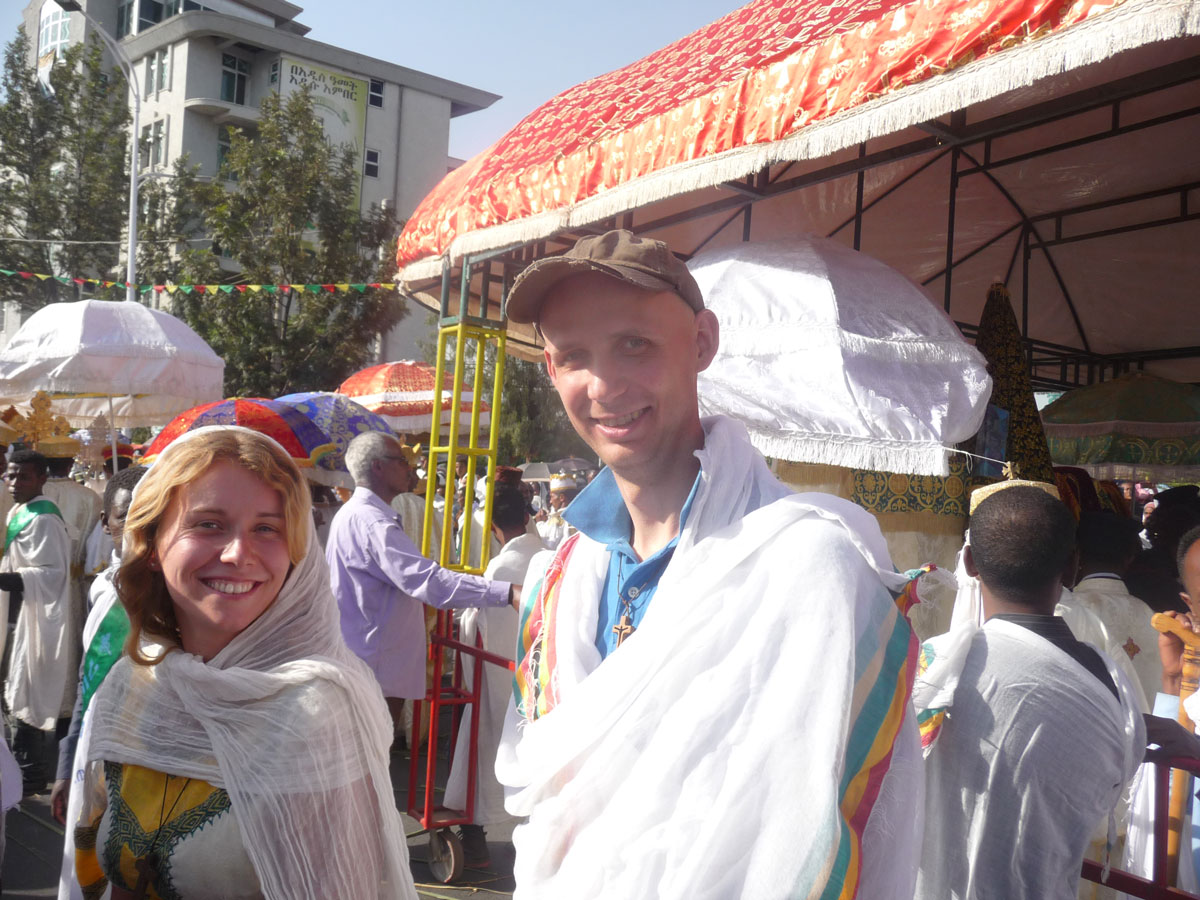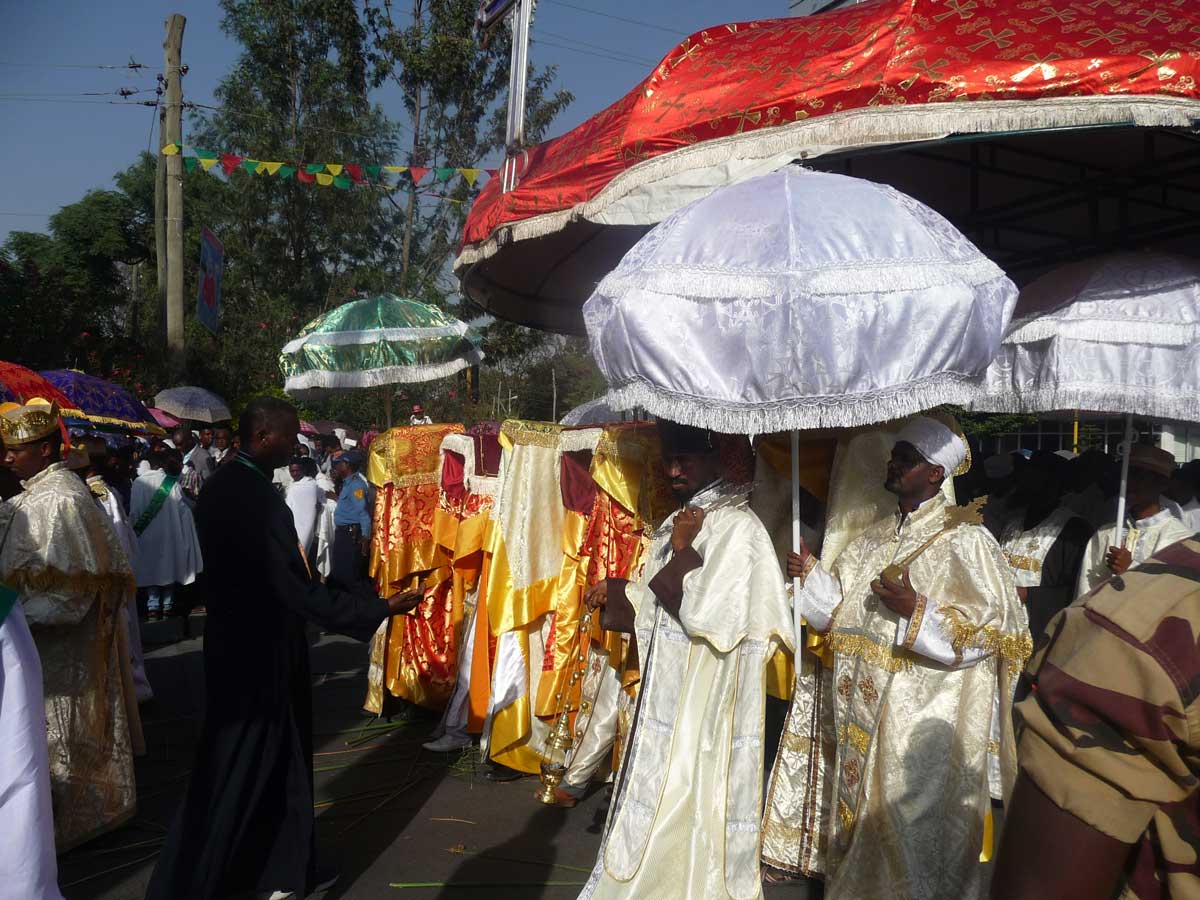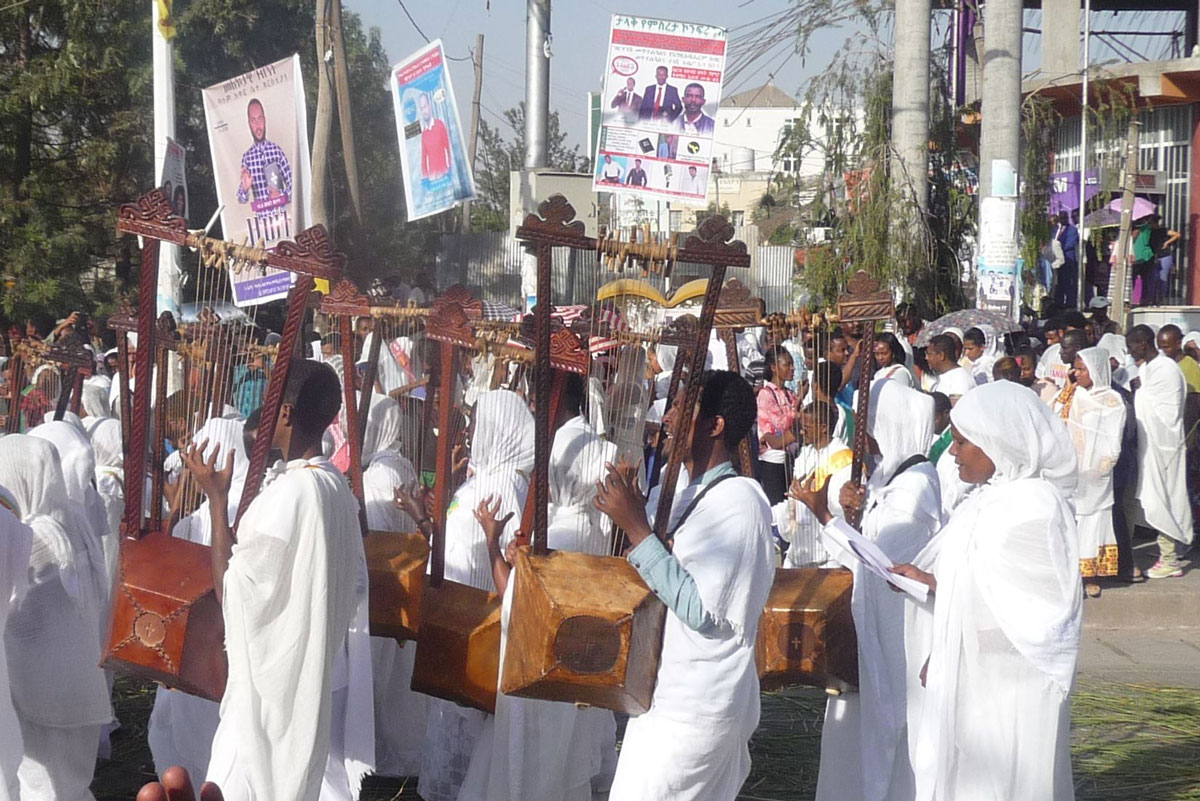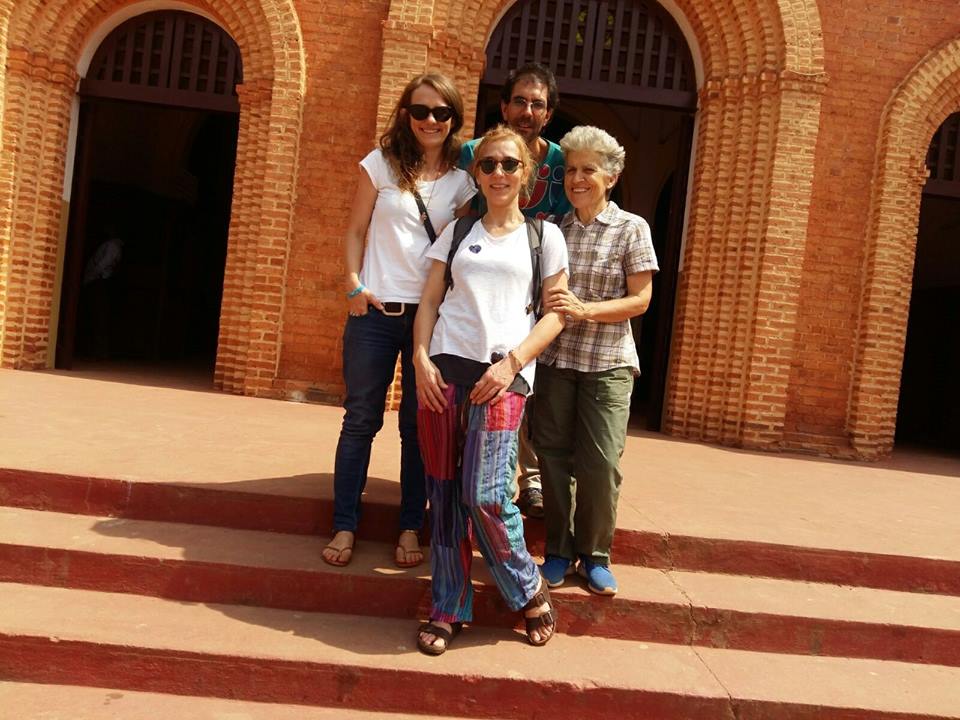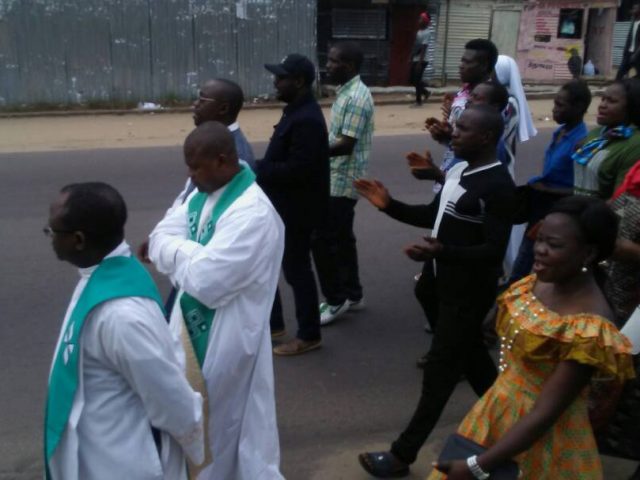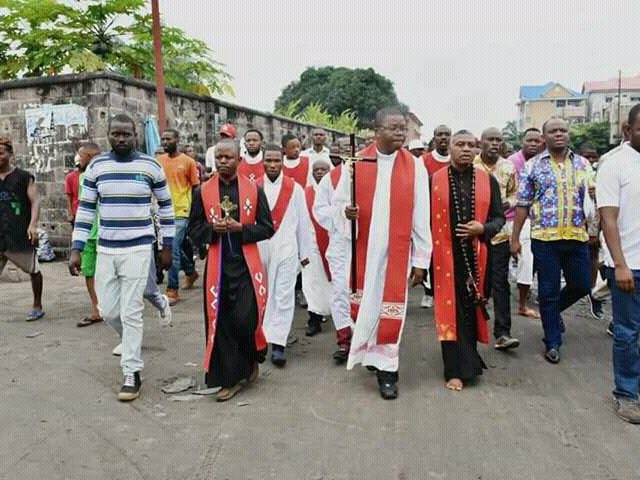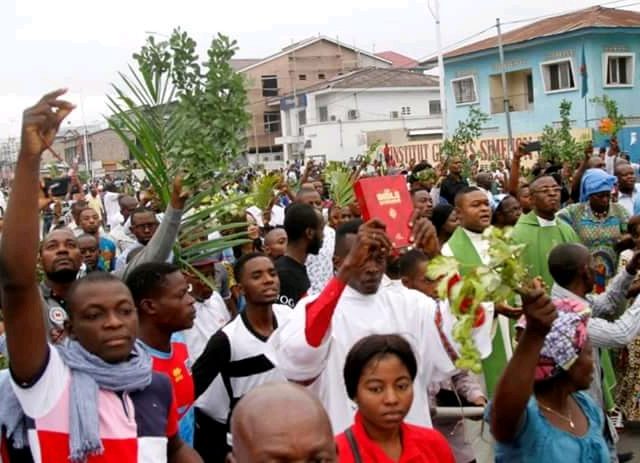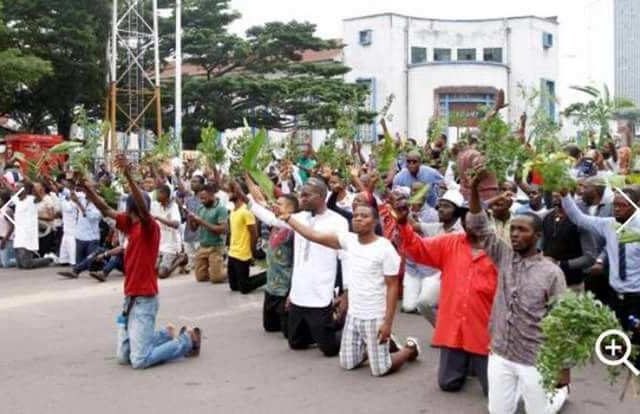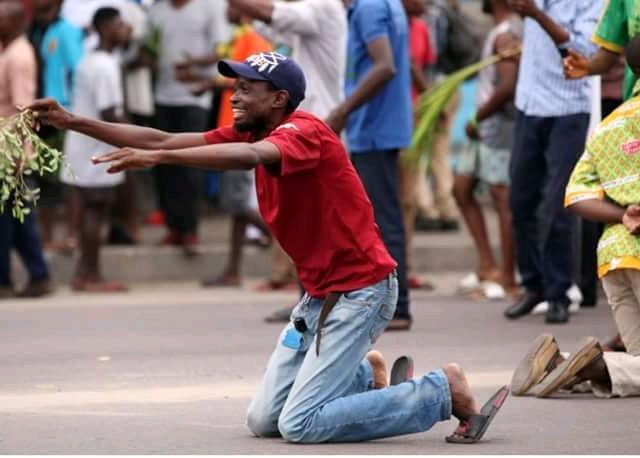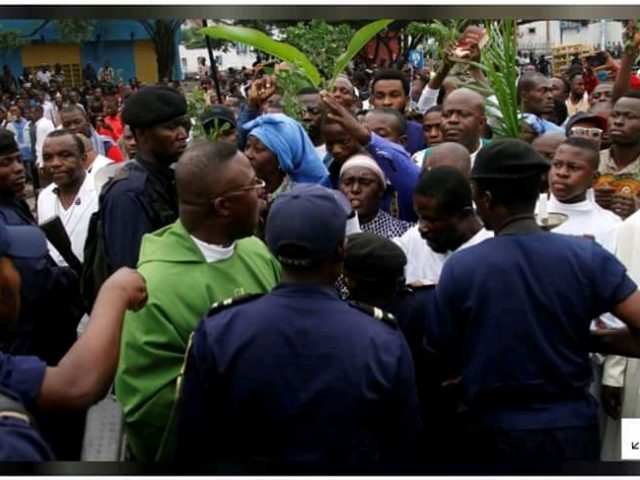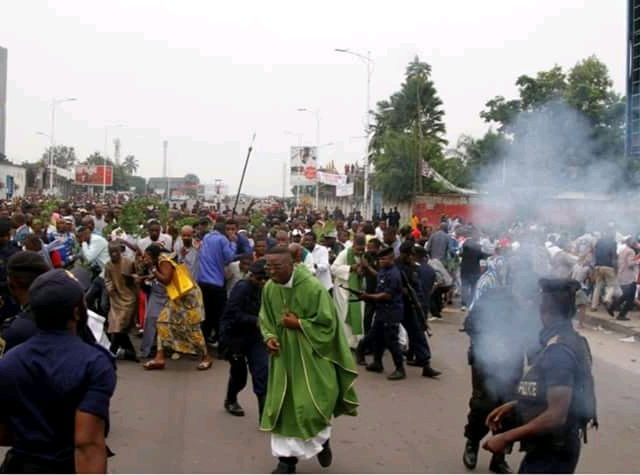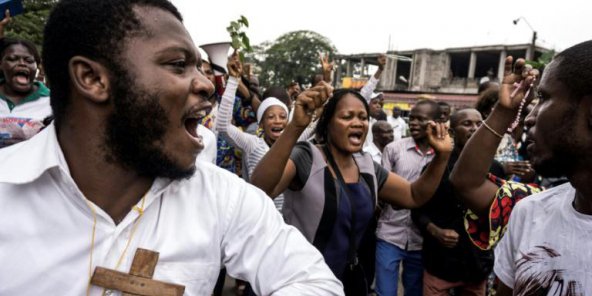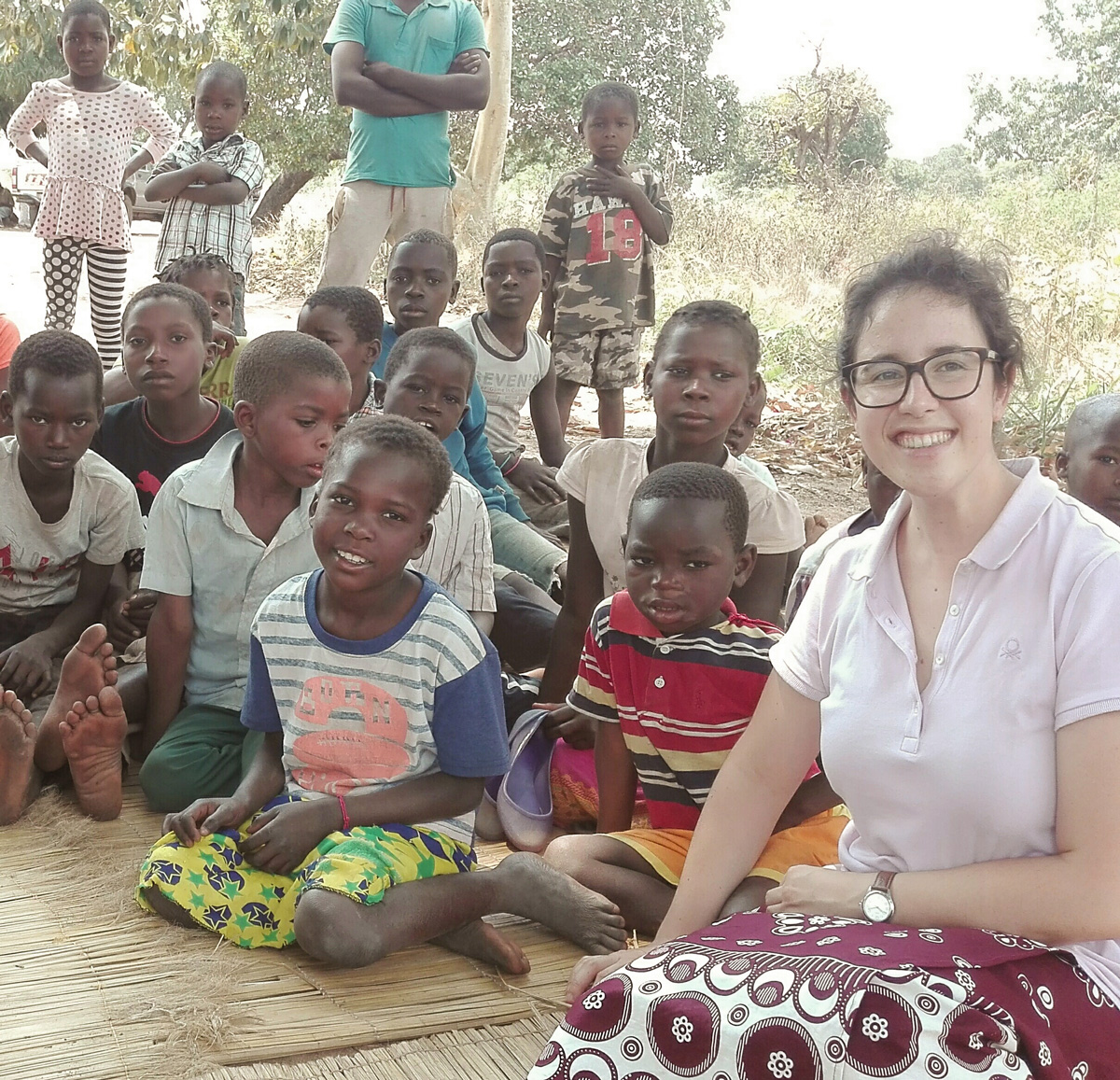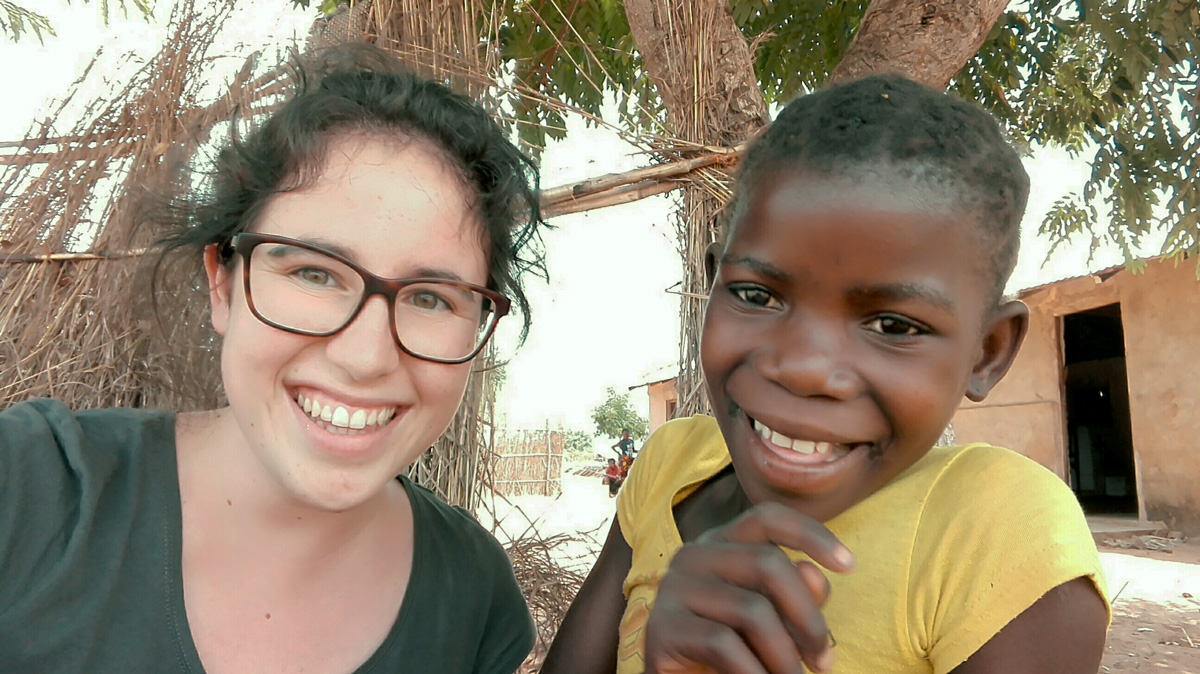Imagine a colorful procession. Crowds of people clothed in different kind of cultural dresses and uniforms are dancing and clapping, singing and making the characteristic African noise “lililili”. They are different ages, young and old, babies and the elders. In the center of the crowd, there are carried big colorful tents, and under them a few men are moving slowly with something on their heads. All the people are coming closer to see them well, at least for a moment. All of them are so happy, because they are celebrating one of the most important feasts in Ethiopia, the Timket.
It is related to the Ethiopian Orthodox Church tradition. Timket means “baptism”, so it is the Lord’s Baptism Feast. This year we participated in the tradition in Awassa.
The day before the feast priests took the replicas of the Ark of Covenant from the church. According to many Ethiopian people, the real Ark of Covenant is placed in Axum (historical place in Ethiopia). However, in all the Orthodox churches there are replicas of the Ark of Covenant and it’s a sign of the presence of God. During the Timket the priests put the arks on their heads and bring them to the nearest water in memory of Jesus’ baptism in the Jordan. They are tided in colorful clothes so we nobody can see them. In case of Awassa all the Arks of Covenant were brought to the lake side. The feast is the only occasion during the year while they leave the churches. The processions were started in different places (in different churches), but they met on the way creating really huge crowd of people. In the destination, some of the people stayed for the whole night, but we went home. In the morning of the following day after the Mass the processions brought the Arks of Covenant back to the churches, but the people still were celebrating whole day. It is good occasion to visit families or friends, to make nice coffee ceremony, prepare ‘dorowot’ (chicken), or drink ‘tela’ (local beer).
And when you experience it, you may fall in love with Ethiopia…
Magda Fiec, CLM Ethiopia




